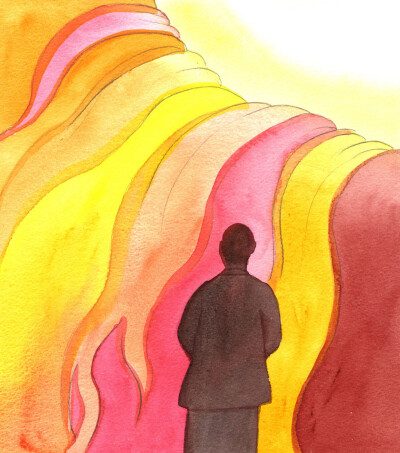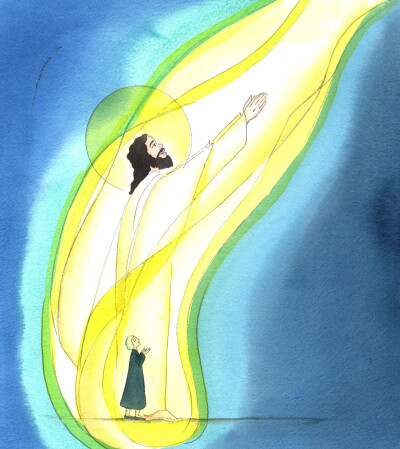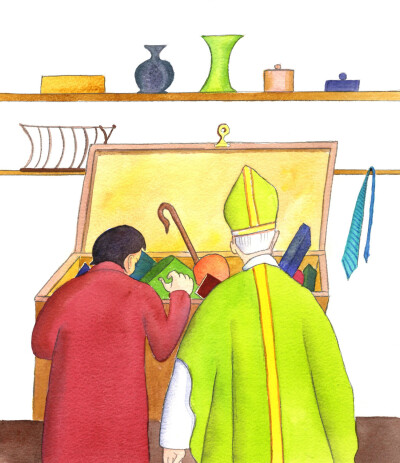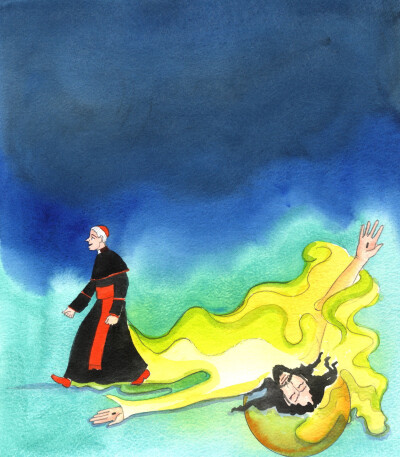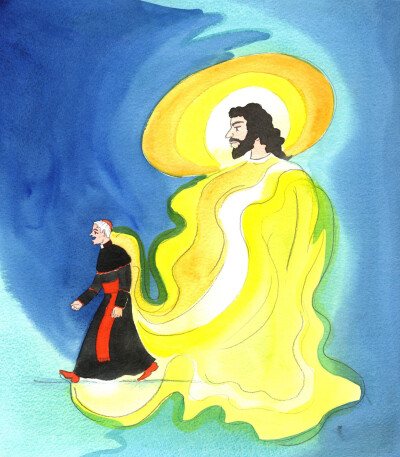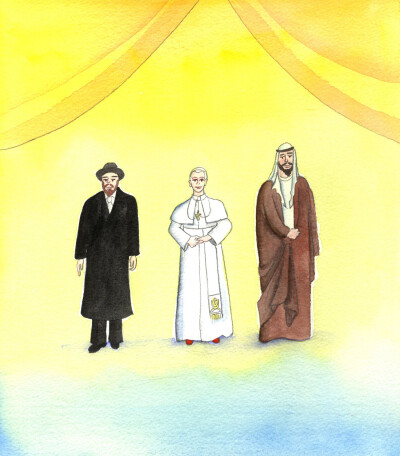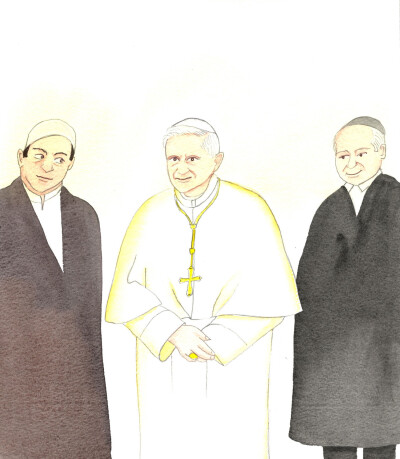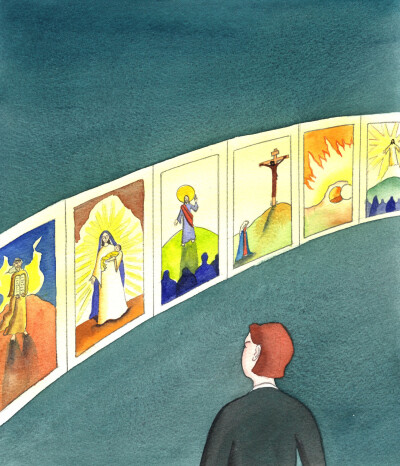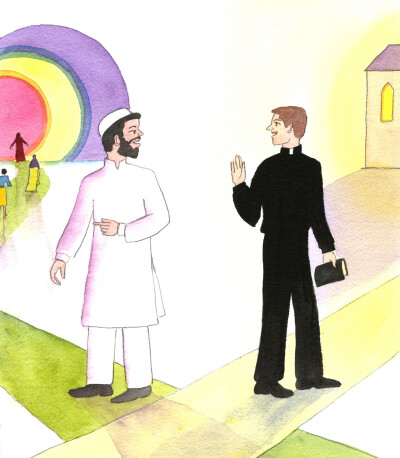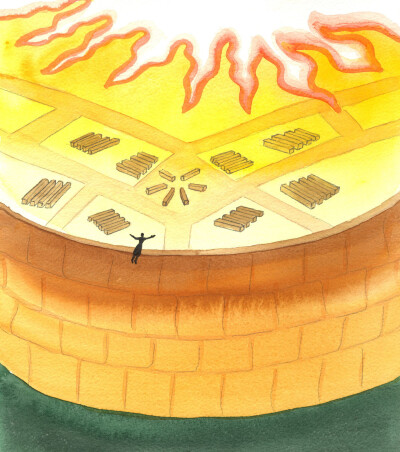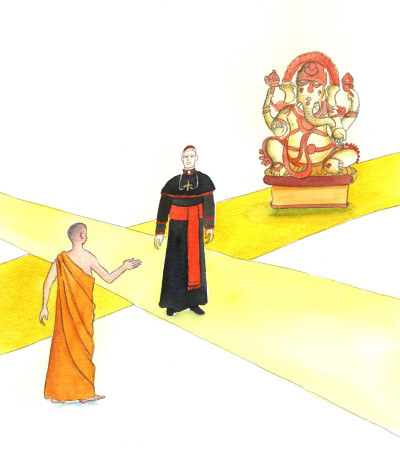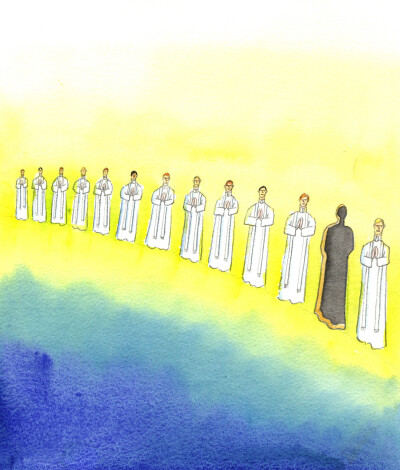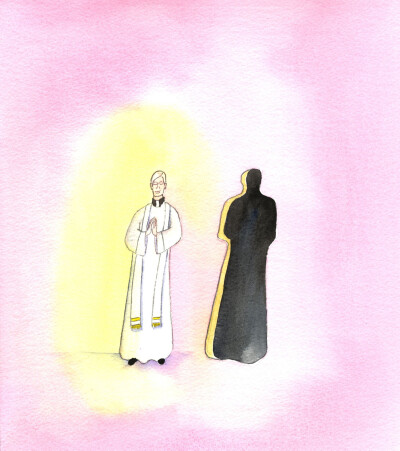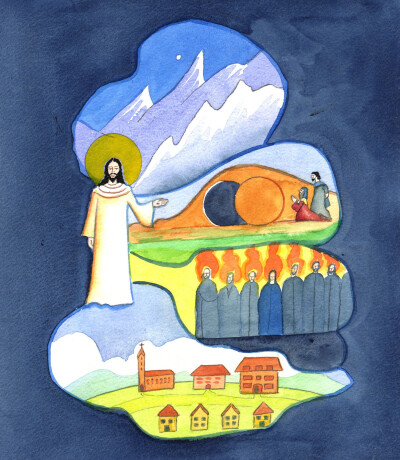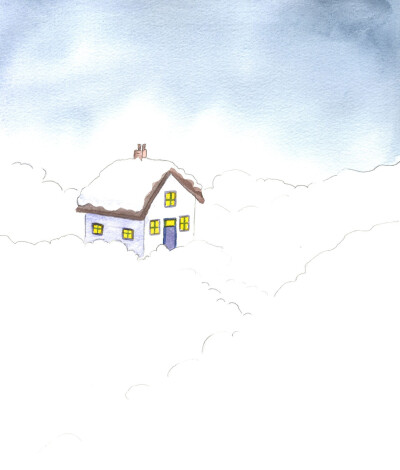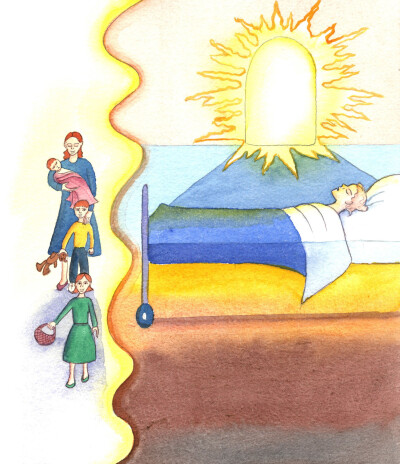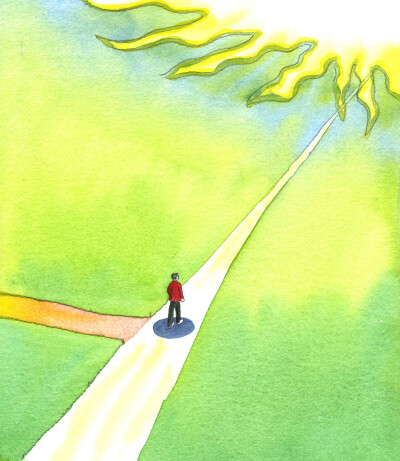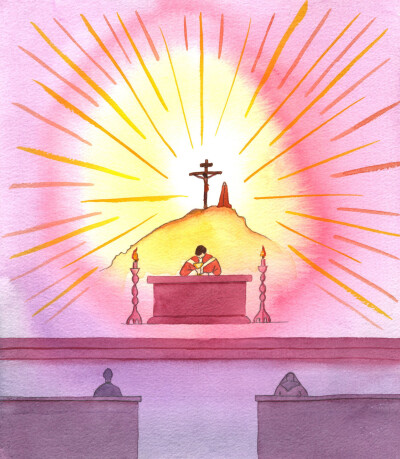Search Page
Showing 561 - 580 of 652
A person who tries to lead a life worthy of Heaven is guaranteed the help of Heaven, even if not seeing exactly how the graces of God are poured out from Heaven, or for what specific purposes. Faith is necessary; yet faith is never confounded, since God is faithful.
It is through the humanity of Christ that we come to the Father, in the Holy Spirit, in prayer, and then - if we have remained faithful until death - in our journey into Heaven, to be with God for all eternity. We have no power of our own by which to reach God, though by faith we allow Him to draw us to Himself.
A woman in a charity shop can be seen selecting attractive objects, and rejecting those items she deems unattractive. This is how many Christians act, even some who believe that they are Christian Bishops. They select doctrines they find attractive and reject long-standing doctrines which are not attractive to them. This is not what faithful Catholics do.
When it is proposed, by organisers of what are called 'inter-faith' prayers, is that everyone pray together without mentioning names, and if a Catholic agrees not to pray 'through Christ our Lord', it's as if that Catholic denies Christ, steps out of the life of grace which was a privileged gift, and leaves Christ behind in order to please others. They would be more impressed, and he would please Christ, if he acted with integrity, and prayed as a Christian or not at all.
When it is proposed, by organisers of what are called 'inter-faith' prayers, that everyone pray together without mentioning names, and a Catholic agrees not to pray 'through Christ our Lord', it's as if that Catholic denies Christ, steps out of the life of grace which was a privileged gift, and leaves Christ behind in order to please others. They would be more impressed, and he would please Christ, if he acted with integrity, and prayed as a Christian or not at all.
We can look at Pope Benedict, to see a good example of how to relate to people of other religions. He is kind to everyone, and visits other buildings, but does not join in what is called "inter-faith" worship, which is a betrayal of Christian faith and practice, as is plain from the Scriptures and the constant teaching of the Church.
A Pope can set a good example for us, showing that it is possible to maintain good relations with people of other religions, even visiting their mosques and synagogues, yet without betraying Christ by engaging in what some people call 'inter-faith' prayer, in which some Christians leave out the Name of Christ as if embarrassed by Him.
Faith is a gift from God, but it comes when people who have heard the story of God's action proclaimed, accept the grace to believe it. That story or proclamation is about God's plan of Salvation. It includes His gradual Revelation of Himself to Abraham, Moses, and others, and His Revelation in His Son, Jesus Christ, who is God-made-man, and who lived on earth, and died, and rose from the dead, to conquer sin and death, to save sinners.
We must be faithful to the plain message of the Gospels, the Epistles, and the plain teaching of the Church through the ages. No Christian should take part in the worship of other religions, or make gestures that would be interpreted as being participation in such worship. God has shown us, through His Son, how to worship. We cannot abandon Christ and remain holy.
By our Baptism we leap over a wall, it seems, that separates the holy from the unholy, no longer being stained by original sin. But the city beyond the wall represents earthly life, through which we should travel without being enslaved by sin. Heaven lies ahead, for the faithful, hence the importance of good preaching, as the clergy urge people not to grow weary, and never to betray Christ. Only the holy can enter Heaven.
Especially in matters connected with other religions, every member of the clergy should be aware of the impact on others of his gestures as well as his words. If he acts in ways that confuse the faithful, or give wrong impressions to people who do not share the Catholic Faith, he is not fulfilling God's plan for his life and for his special vocation.
Priests must be determined to grow in holiness. Men are called by Christ so that the faithful can have a Christ amongst them where they live, and Christ made Really Present in the Blessed Sacrament because of the priest who celebrates the Mass. Amongst pure priests, God sees, here and there, however, a gloomy figure: like an empty space, symbolising a lack of charity, when a priest is in serious sin.
The whiteness of an alb represents the purity that a good priest should have; a very sinful priest is like an area of emptiness, from which the Holy Spirit has fled, leaving only darkness. How can sinful priests be helped, or holy priests kept pure? - By the intercession of the faithful, the Mother of God, and all the Saints, who petition God to help the Clergy.
We should be able to defend the Faith. It is not superstition. We believe in things Divinely revealed, but our faith is not unreasonable. God's beauty, power and laws are discernable in nature - including our nature and conscience. There is historical evidence for Christ's life; and His friends were transformed and made brave by His Resurrection. We have two thousand years of evidence - despite sins and mistakes - that Catholicism elevates society, marriage, government, education, treatment of the sick, and children, and brings peace, and hope of Heaven.
The Eucharist, for Catholics, is a sign of unity, not a step to it. A faithful Catholic cannot take part in ill-defined, ambiguously-worded ecumenical events that confuse people about truth, and yet which are meant to increase communion between Christians. The Most Holy Eucharist, treasured by Catholics, is not to be confused with a sharing of merely bread and wine, as merely a social event.
We must persevere in our belief that God is good, whatever happens. God asks us to trust in Him, whatever we experience in life. Just as mountain-climbers keep on believing in the existence of the peaks, even when sudden mists obscure the view, so, faithful followers of Christ must trust that He will lead them Home to the Father and Heaven even when the Way ahead seems to be uncertain, or the Goal impossible to reach.
A joyful soul, in a state of grace, is like a brightly-lit, warm cottage in the middle of a frozen landscape. It is attractive to those who long for joy and warmth in their own lives, but not to cynics with little or no faith, who are suspicious about the source of such joy, and call such souls 'naive' or 'foolish'.
God is pleased to see people welcome children, to see the love for life in the hearts of many people on earth; He is also pleased to see that some of the faithful even have a 'love for death', in the sense that they have banished their fears, by His grace, and even long to go through death, as through a doorway, in order to meet the Lord, when He calls them 'home'.
Really to love God is to prefer His Will to our ambitions. The Lord is glad to see a non-Catholic Christian come into full Communion with the Catholic Church. Yet from that 'spot' on the road there is a lengthy journey to be made, towards Heaven, and much to learn. Growth in faith, hope and love should be achieved, by God's grace, through prayer, spiritual reading, self-mastery, and acts of kindness, in humility, patience and trust.
We are present at Mass to the one Sacrifice of Christ by which mankind was redeemed. This does not mean that everyone is saved. Christ died for all. Everyone is offered opportunities in life, by God, by which to benefit from the graces poured out for souls through Christ's self-giving love; but He sees how tragic it is, that so few of us believe in Him, and follow Him.
Showing 561 - 580 of 652

